Configure Now
Items in Your Cart0
0Items in Your Cart
Start building your packageShop Now
With global populations increasing exponentially over the past century, the demand for food production is also growing at a rapid pace. As a response, sustainable food production from aquaculture is rising in popularity due to its resource efficiency. From 1990 to 2018, worldwide aquaculture production increased by 527%. However, with fisheries facing pressure for consistent year-over-year growth to match demand, illegal operations can arise as an effort to increase production.
Common examples of illegal aquaculture operations include:
Breaching legal guidelines not only places substantial risk on internal staff, but also the surrounding natural environment and end consumers. Without regulation, fish farming can result in unsafe working conditions, habitat destruction, food scarcities, water pollution, and health concerns from consumption of contaminated fish.
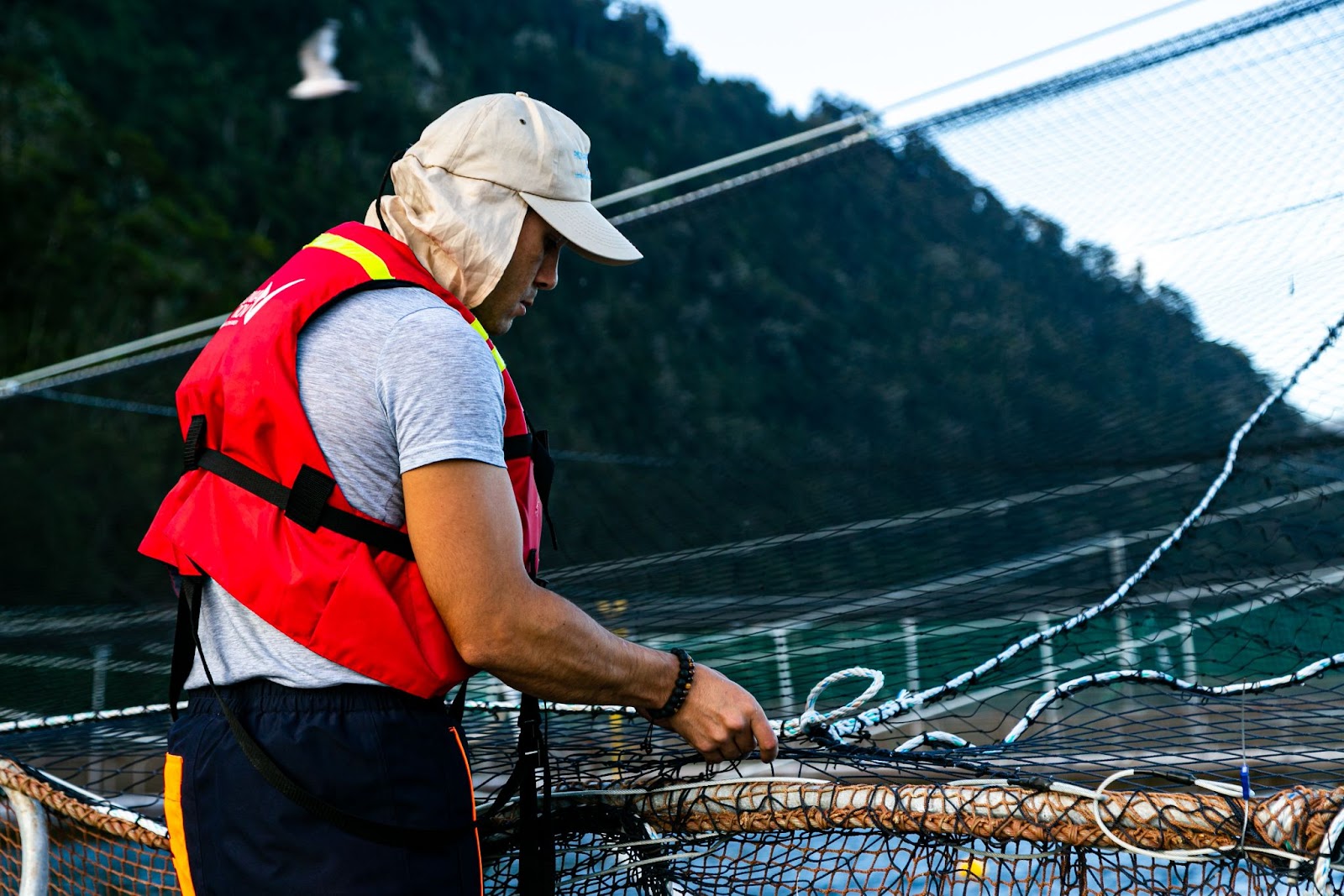
The Global Seafood Alliance lays out a number of aquaculture best practices for their members to follow. Organizations like this allow for fisheries to receive certifications to highlight their safe and sustainable practices. With dedicated guidance, farm operators can be sure that they are optimizing operations for environmental responsibility, food safety, animal health, and social responsibility, while avoiding legal complications.
Associated costs can include paying dive teams for consistent inspections, conducting regular maintenance tasks, and using only approved materials, chemicals, or feed. Although short-term, an illegal operation may avoid some upfront costs, potential fines can be catastrophic. Under s. 40 of the Canadian Fisheries Act, corporations will face a between a $500,000 - $6,000,000 fine for first offenses.
 National regulations dictate which species are acceptable to be farmed at aquaculture sites, mainly for protection against invasive species. Illegal farms can be tempted to farm these species to offer competitive advantages to meet demand. However, farming unapproved species can potentially decimate local populations in the event of stock escapes.
National regulations dictate which species are acceptable to be farmed at aquaculture sites, mainly for protection against invasive species. Illegal farms can be tempted to farm these species to offer competitive advantages to meet demand. However, farming unapproved species can potentially decimate local populations in the event of stock escapes.
Underneath the federal level, oftentimes provincial/state governments assist in many capacities of regulation. Breaking into the province/state level allows industry regulations to be more specific, making for more appropriate enforcement for each region.
Want to Learn More about ROVs in Aquaculture?
The farming of illegal species introduces a major concern of escapes resulting in invasive species. Without consistent monitoring and maintenance of net pens, escapes can be unpredictable. Depending on the species, even minor breaches can cause irreparable damage to natural populations or spread foreign disease.
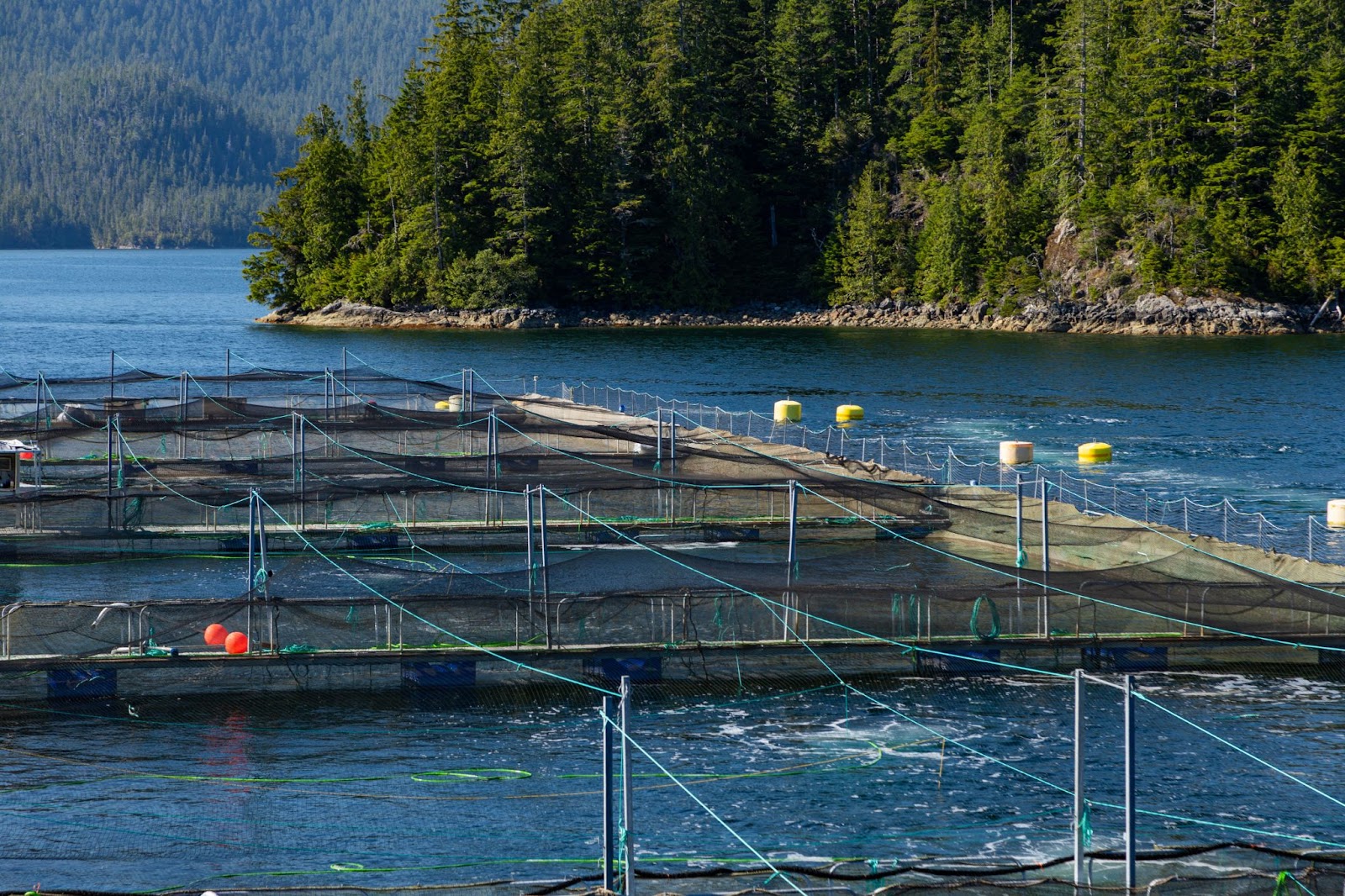 This example from an illegal Nile Tilapia farm in Ghana shows what can happen in these circumstances. After opening prior to legal approval, Nile Tilapia began escaping, causing an invasive take over, with up to 10% of the local fish population being replaced after only 3 years of operation. Long-term, this can carry irreversible consequences to historical fishing patterns and wreak havoc on natural environments.
This example from an illegal Nile Tilapia farm in Ghana shows what can happen in these circumstances. After opening prior to legal approval, Nile Tilapia began escaping, causing an invasive take over, with up to 10% of the local fish population being replaced after only 3 years of operation. Long-term, this can carry irreversible consequences to historical fishing patterns and wreak havoc on natural environments.
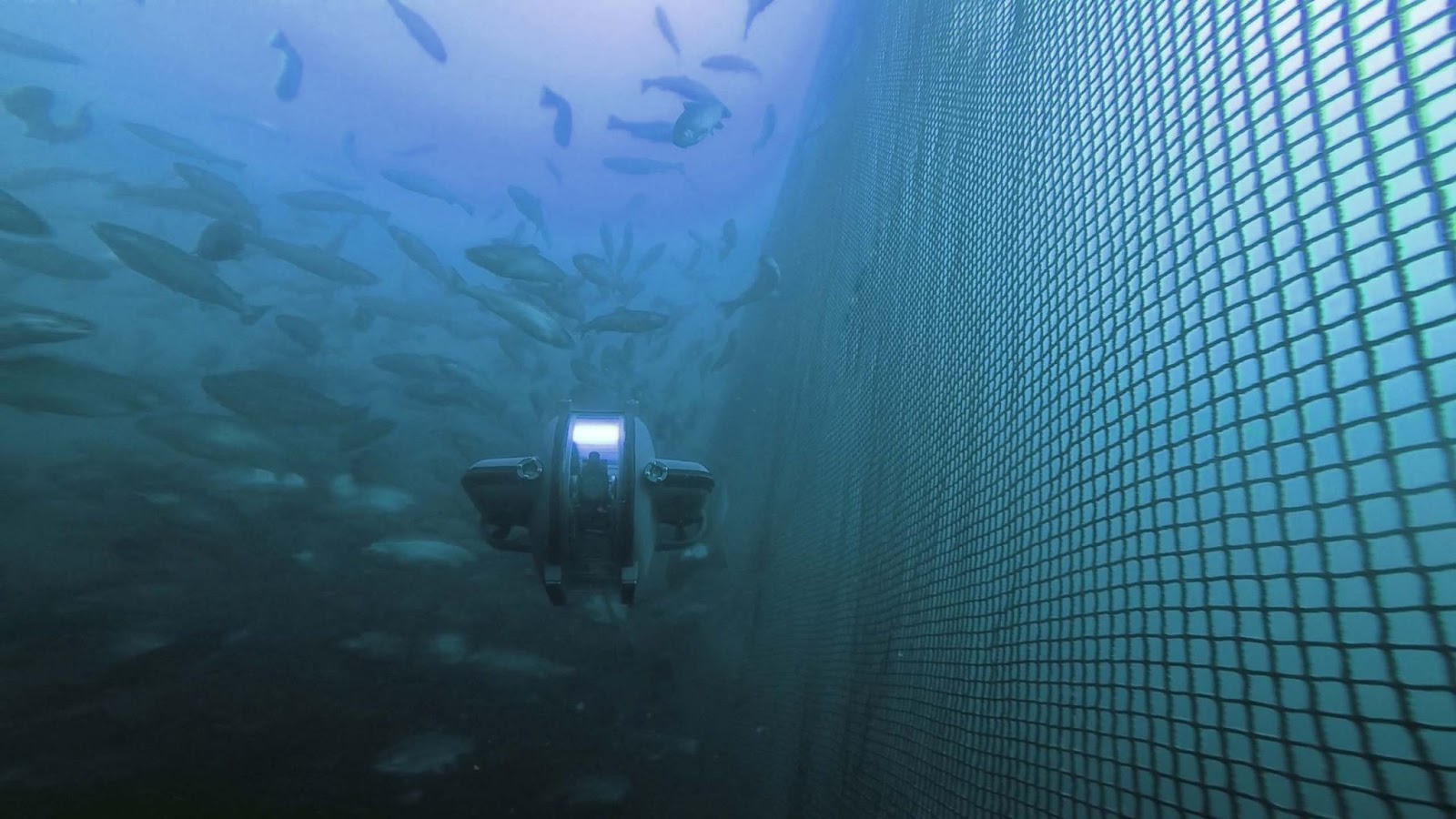
Observation or micro class ROVs can quickly and easily be deployed by officers to evaluate and record the status of nets, mortalities, parasite outbreaks, stock species, or other submerged assets. When equipped with a sonde or sampling tool, ROVs can also be effectively used to record environmental data to ensure safe chemical levels. All of these operations can be effectively performed while an officer remains safely on shore.
Ask us about ROVs and get your fish farm a convenient inspection option on hand
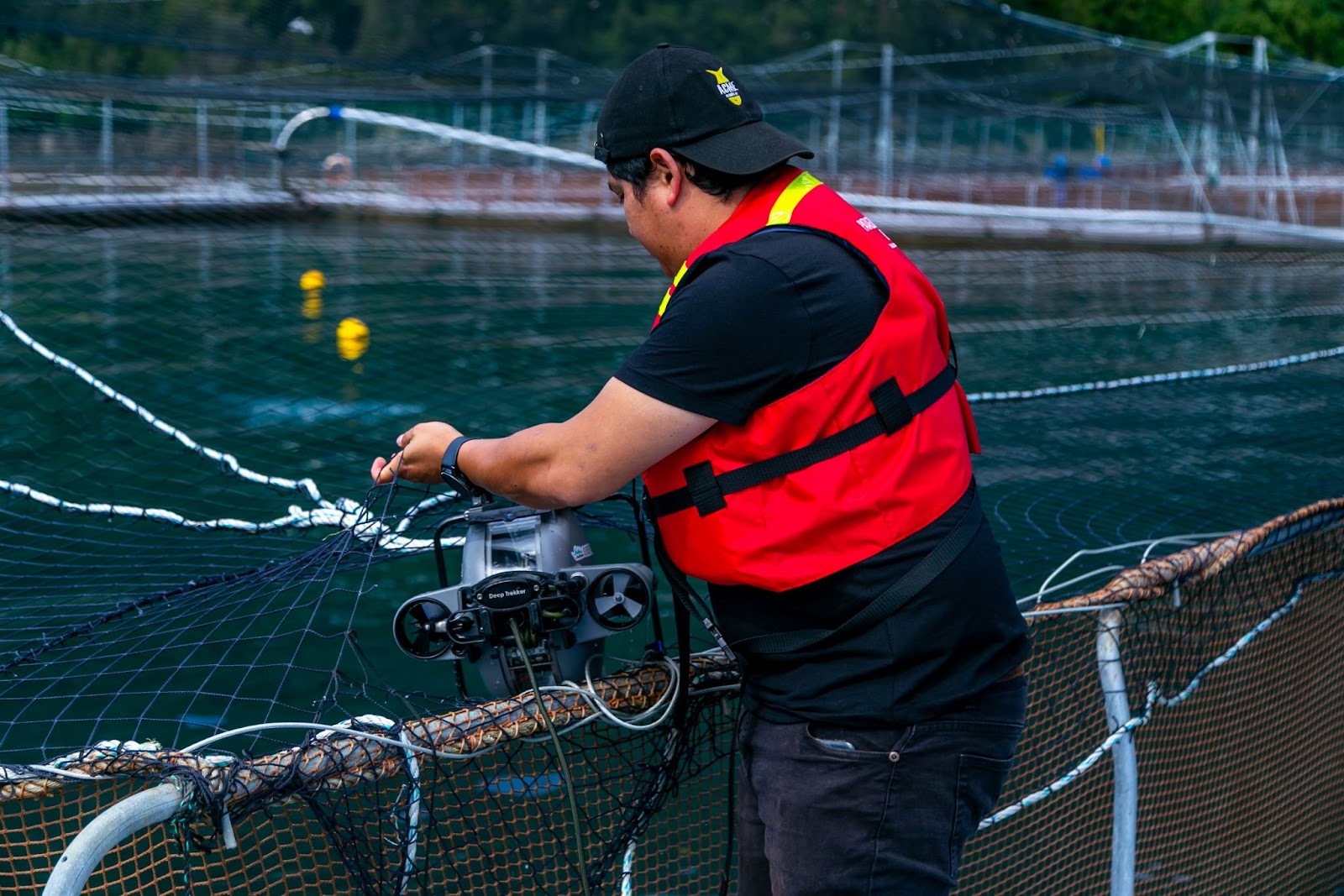
The intuitive handheld BRIDGE controller resembles the controls of a video game, shortening the learning curve for use. Robust features combined with simple controls results in a powerful inspection tool that most officers will immediately be able to operate.
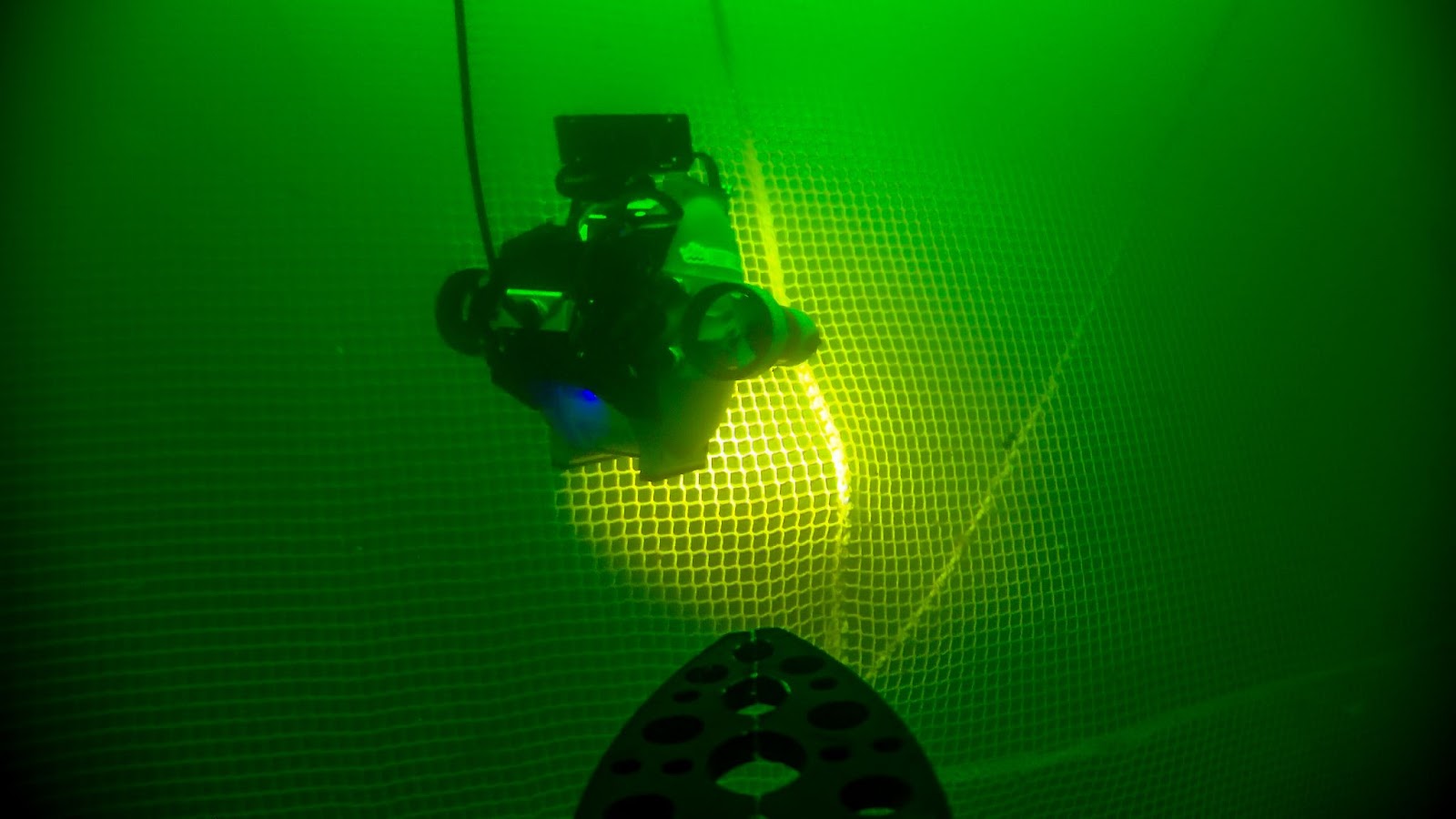
As always, our team of experts is available to answer any questions you may have. If you’re looking to streamline aquaculture inspections, rely on the ROVs trusted by Fisheries and Oceans Canada. Reach out to get your customized quote today.
November 3rd, 2025
At REPMUS 2025, Deep Trekker’s ROVs validated real-world mine countermeasure capabilities...
July 5th, 2025
Deep Trekker’s new Tampa facility brings faster ROV repairs, in-stock parts,...
June 11th, 2025
Equipped with sonar and DVL, Deep Trekker ROVs are helping SES...